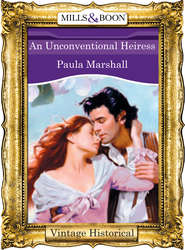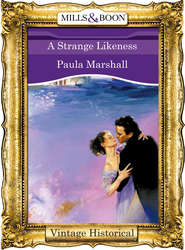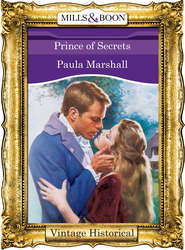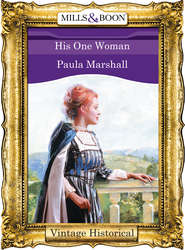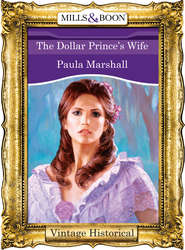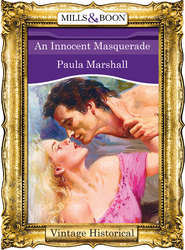По всем вопросам обращайтесь на: info@litportal.ru
(©) 2003-2024.
✖
The Beckoning Dream
Настройки чтения
Размер шрифта
Высота строк
Поля
Chapter One
1667
“Who the devil can that be at this hour, Catherine?”
Rob Wood had just carved himself a large chunk of cold bacon for his breakfast to go with the buttered slice of bread that his sister, whom he always insisted on calling by her true name, had cut for him.
He had no sooner transferred the bacon to his pewter plate than a vile hammering had begun on the door of their small house in Cob’s Lane, London, not far from the Inns of Court where Rob was studying to be a lawyer. Or was supposed to be studying.
Rob was as idle as his sister was diligent. The only hard work he did was to write pamphlets attacking the rule of King Charles II and praising that of the late usurper and regicide, Cromwell. This was a particularly foolish act since England was at present at war with the Netherlanders—fighting them in order to prevent them from seizing the major share of the world’s trade. Opposition to the king was thus bound to be seen as treason.
Catherine, who was busy buttering a slice of loaf for herself, said crossly, “Answer the door, Rob. Don’t stand there yammering. It’s probably Jem Hollins come to clean our chimneys.”
Grumbling, Rob rose to do as he was bid. Although he was living entirely on his sister’s earnings in the theatre, he resented that fact rather than being grateful for it. Their father, once a rich country gentleman, had supported Cromwell in the late Civil War. Charles II’s Restoration had seen his estates confiscated; he had died penniless, leaving his two children to make their own way in the world.
Rob thought of himself as a dispossessed Crown Prince and behaved accordingly.
He never reached the door. Tired of trying to attract their attention, the Woods’ importunate visitors ceased their knocking abruptly.
Shouting “Ho, there, take heed and attend to us,” they knocked down the house door with iron-tipped staves of wood, before rushing in, seizing Rob and throwing him to the floor.
A third man, carrying a large piece of parchment importantly before him, put one foot on the struggling Rob, whilst a fourth placed himself between Catherine and her brother in case she tried to come to his assistance.
“By what authority—?” she began, using all the power of her stage voice to try to overawe them.
“By the authority vested in me by his most noble majesty, King Charles II, I hereby arrest Robert Wood for the crime of high treason, and detain his sister Catherine Wood, also known as Cleone Dubois, actress and whore, for questioning as to his activities.”
“My sister’s no whore,” shouted Rob as he was hauled to his feet, his hands pinioned behind his back, “and I know of no law which says that a man may not speak or write freely of his opinions—unless you have just invented one.”
If only Rob would learn to keep silent when challenged he would not find life so difficult, mourned Catherine as the leading tipstaff struck her brother across the mouth, bellowing, “That should silence your lying tongue, you treacherous rogue.”
He and two of his fellows began to drag Rob outside. The fourth seized Catherine roughly by the arm with one hand, while running the other across her breasts.
Hissing at him, “No need of that, I have no desire either to have you fondle me, or to escape,” Catherine brought her high-heeled shoe down hard on his instep. The tipstaff let out a shrill cry before striking her across the face with such force that she was thrown against the wall.
“Had I the time, you insolent bonaroba, you whore, I’d serve you as a man should serve a whore—later, perhaps,” he roared at her as she tried to recover her balance.
And who am I to criticise poor Rob for not keeping his tongue under guard when I can’t keep mine shut, either? Catherine thought as she walked painfully into the street. Outside a small crowd had gathered to watch the two Woods dragged away. She looked around her; where are they taking us? To prison? To Newgate? Or to the Tower of London itself?
She was destined for none of them, it seemed. She and Rob were half-walked, half-dragged to the nearest wharf on the Thames where two wherries were waiting. Rob was shoved into one, and she into the other.
The last she saw of him was his wherry making for the Tower, whilst she was rowed off in the opposite direction. To the Palace of Whitehall, no less, the King’s home in London, and consequently, the seat of government. Catherine’s mounting curiosity almost overcame her fear for herself, even as she worried over poor Rob’s ultimate fate.
No time for that, though. She was bustled along Whitehall’s gravelled walks towards one of the many buildings that made up the Palace precincts. The tipstaffs waved their staves, doors were opened for them, and presently, after traversing a number of long corridors, they came to a pair of double doors, on whose panels the tipstaffs knocked more subserviently than they had done in Cob’s Lane.
Beyond the doors was a largish room, one wall of which consisted almost entirely of latticed windows looking out on a garden. A number of finely dressed gentlemen were standing about, but they left the room even as Catherine entered it.
At the opposite end from the doors was a long table, where a man whom she immediately recognised sat in state. Behind him, covering the whole wall, hung a huge tapestry showing the Greeks pouring out of the Wooden Horse to capture and destroy Troy.
Catherine had no time to admire wall hangings. She was too busy staring at Sir Thomas Gower. Sir Thomas had taken her father, Rob and herself into his household for a short time after King Charles’s Restoration had made them homeless. He had been as kind to her father as his position as a powerful Royalist had permitted him to be.
Why had she been brought here? She was soon to find out.
“Come here, Mistress Wood,” Sir Thomas bade her, and then, “Bring the lady a chair, she seems distressed. Place it before me. Sit, sit,” he commanded her as she walked slowly forward, rubbing her arm, bruised where the tipstaff had seized it.
Now that she was near to Sir Thomas, Catherine could plainly tell that he had aged since she had last seen him. His face was lined with over sixty years of life, but he still possessed the calm gravity that had been so different from her father’s impotent rage at what had happened to his pleasant life.
She could also see that level with herself, and in front of Sir Thomas’s grand oak table on which books, ledgers and parchments stood at one end, was an armchair in which a man lounged. A man who was staring at her, not with Sir Thomas’s kind and paternal stare, but hungrily, almost ferally, his blue eyes cruel.
Bewildered, but still retaining the steady calm for which her fellow actors admired her, Catherine returned Sir Thomas’s grave look. She must not show her fear, but must keep her head so that Rob might not lose his, and pray that there might be a way out of the dire situation in which he had placed them.
“My dear Catherine,” said Sir Thomas, kindness itself, “I fear that your condition—or perhaps I should say, your brother’s condition—is a sad one. Treason!” He shook his grey head helplessly. “An ugly word, my dear. Nevertheless, God willing, we might find a way through the wood for you.”
What wood was he speaking of? The good old man, Catherine thought dazedly, was being so tactful that she hardly knew what he was saying. The lounging fellow on her right, whose eyes were still so hard on her that she could feel them when she could no longer see them, grunted “Ahem’ in a meaningful tone—although his meaning escaped Catherine!
But apparently not Sir Thomas, for he threw a sideways glance at his unmannerly aide, and said smoothly. “Ah, yes, Mistress Wood. I must be plain. We are not engaged in one of Master Wagstaffe’s comedies, are we?”
“No, indeed,” agreed Catherine.
“Whoever Master Wagstaffe is,” drawled the lounging man. “Another mystery.”
“No matter.” Sir Thomas was a little brisk. “I put it to you, Mistress Wood, that you do not share your brother’s Republican views.”
“I doubt—” and now Catherine was dry “—that he shares them himself. Rob is a weathercock. An attack of the megrims and he is all for the late usurper. If the weather is fine, and there is good food on the table, then it is ‘God save King Charles II’.”
Sir Thomas was suave. “All the more reprehensible of him, then, mistress, to put his life in jeopardy by writing treason. You, I understand, are a good and loyal subject of the King?”
Since his question seemed to invite the answer “Yes”, Catherine gave it to him.
“Oh, excellent,” smiled Sir Thomas. “So you would be willing to do the state some service. You speak Dutch, mistress, do you not? Your late mother being a Netherlander, as I remember.”
This seemed neither here nor there, and its relevance to poor Rob seemed questionable, but doubtless there was some point to this that escaped her. The lounging man was fidgeting again.
Sir Thomas gave him a benevolent stare. “Patience, Tom Trenchard, patience. We are almost at the heart of the matter.”
“Oh, excellent,” drawled Tom Trenchard, mocking Sir Thomas’s earlier remark. “I had thought that we were trapped in the outworks for ever.”
This time Catherine favoured him with a close examination, particularly since Sir Thomas was allowing him more freedom than was usually given to an underling. The principal thing about him was that he was big, much bigger than any of the men in Betterton’s company.
His shoulders were broad, his hands large, and he appeared to be at least six feet in height. His hair, his own, was of a burning red gold—more gold than red. It was neither long like the wigs of the King’s courtiers, nor cropped short like one of Cromwell’s Roundheads, but somewhere in between. It was neither straight nor curly, but again, was also somewhere in between, waving slightly.
His clothes were rough and serviceable. His shirt had been washed until it was yellow, and the weary lace at his throat and wrists was darned. His boots were the best thing about him, but even they were not those of a court gallant. Neither was his harsh and craggy face.
She already knew that he was mannerless, and he gave off the ineffable aura of all the soldiers whom she had ever met, being wild, but contained. Or almost contained. He saw her looking at him, and nodded thoughtfully. “You will know me again, mistress, I see.”
“Do I need to?” Catherine countered, and then to Sir Thomas, “Forgive me, sir, for allowing my attention to stray,” for she knew that the great ones of this world required all attention to be on them, and not on such lowly creatures as she judged herself and the lounging man to be.
He forgave her immediately. “Nay, mistress, you do well to inspect Master Trenchard. You will have much to do with him. As you have not denied either your loyalty, or your knowledge of Dutch, I am putting it to you, mistress, that you might oblige us by accompanying him to the Netherlands, there to use your skills as a linguist and as an actress. You will join him in an enterprise to persuade one William Grahame, who has done the state some service in the past, to bring off one final coup on our behalf.






